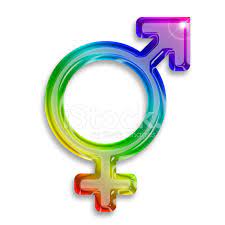In a world increasingly aware of gender diversity, the term "cis man" often comes up in conversations about identity. But what does it really mean? A cis man is someone who identifies as male and was assigned male at birth, distinguishing him from transgender or non-binary individuals. Understanding this term is essential in recognizing the complexities of gender and its impact on society. This article will delve into the nuances of being a cis man, the importance of understanding gender identity, and how cis men can actively participate in conversations about gender inclusivity.
Understanding the Term "Cis Man": A Quick Overview
The term "cis man" refers to a person who identifies with the male gender and was assigned male at birth. "Cis" is short for "cisgender," which is used to describe anyone whose gender identity aligns with the sex they were assigned at birth. This contrasts with "transgender," where an individual’s gender identity does not correspond with their assigned sex. Recognizing these distinctions is crucial for fostering open dialogues about gender and identity.
Cis men can be found in various roles and cultures, often navigating a world where traditional gender norms are being challenged. While the term may seem straightforward, it carries a wealth of implications, particularly in discussions surrounding privilege, societal expectations, and inclusivity. Understanding what it means to be a cis man is vital for engaging in meaningful conversations about gender equity and representation.
The Difference Between Gender Identity and Gender Assigned
Gender identity refers to an individual’s personal sense of their gender, which may or may not align with the sex they were assigned at birth. For cis men, their gender identity matches their assigned sex, creating a sense of alignment that many may take for granted. On the other hand, gender assigned at birth typically relies on biological markers like chromosomes and anatomy, which can sometimes be misleading or overly simplistic in defining one’s identity.
This distinction is important because it highlights the diversity of experiences within the gender spectrum. While cis men may experience societal privileges that come with being male, understanding that not everyone shares this experience can foster empathy and support for those navigating different gender identities. Recognizing this difference empowers individuals to embrace a broader understanding of gender beyond binary norms.
Why "Cis" Matters in Conversations About Gender
The term "cis" serves as a vital cornerstone in discussions about gender because it helps clarify the distinction between those who experience gender alignment and those who do not. By labeling oneself as a cis man, individuals acknowledge their privilege in a society that often favors traditional male identities. This awareness can foster a greater understanding of systemic issues related to gender, such as sexism and discrimination against transgender individuals.
Furthermore, labeling helps create a shared vocabulary that enables deeper conversations about gender identity. It allows people to discuss their experiences and challenges without conflating them with those of others, paving the way for a more nuanced understanding of gender. By recognizing the significance of the term "cis," we can create a more inclusive dialogue that acknowledges the realities of diverse gender identities.
Exploring the Origins of the Term "Cisgender"
The prefix "cis" comes from Latin, meaning "on this side of" or "on the same side as." It was adopted in the late 20th century as a way to contrast with "trans," which means "across" or "on the other side." The term "cisgender" was born out of a need to describe those whose gender identity aligns with their assigned sex, providing a clear vocabulary for discussing gender outside the binary.
The emergence of the term reflects broader societal shifts towards recognizing and validating different gender identities. By providing a label for those who are not transgender, "cisgender" has opened up important conversations about gender and identity. Understanding the origins of the term helps frame ongoing discussions about gender in a way that respects and acknowledges the experiences of all individuals.
Common Misconceptions About Cis Men and Their Identity
One prevalent misconception about cis men is that they do not face any struggles related to their gender identity. While it’s true that cis men may not experience the same challenges as transgender individuals, they can still grapple with societal expectations and norms surrounding masculinity. The pressure to conform to traditional male roles can create emotional and psychological stress, leading to issues like mental health struggles or toxic behaviors.
Another misconception is that all cis men support or perpetuate patriarchal systems. While many cis men benefit from societal privileges, that doesn’t mean they all actively endorse oppressive practices. Many cis men are allies to the LGBTQ+ community and work towards gender equity. Acknowledging this complexity is key to fostering understanding and collaboration in the fight for inclusivity and respect for all identities.
How Cis Men Fit into the Gender Spectrum
Cis men occupy a specific place on the gender spectrum, often represented by traditional male identities. However, it’s essential to recognize that gender is not a rigid binary; rather, it’s a fluid spectrum that encompasses a variety of identities and expressions. Cis men may express their masculinity in diverse ways, challenging the notion that there’s a singular way to be a man.
Understanding how cis men fit into this spectrum can also help them cultivate relationships with those who identify as non-binary or transgender. By recognizing the fluidity of gender, cis men can become more inclusive in their interactions, fostering connections that celebrate diversity rather than adhere to outdated norms. This understanding can lead to a richer, more empathetic dialogue around gender.
The Role of Cis Men in LGBTQ+ Discussions
Cis men have a critical role in LGBTQ+ discussions, primarily as allies who can help amplify marginalized voices. Their participation can challenge the status quo and promote a more inclusive environment where diverse identities are recognized and valued. By actively engaging in conversations about gender and sexuality, cis men can help break down barriers and foster understanding.
Moreover, cis men can use their privilege to advocate for policies and practices that support LGBTQ+ rights and visibility. This can include everything from challenging discriminatory language in their communities to supporting LGBTQ+ organizations and initiatives. By taking an active role, cis men can contribute to a culture of inclusion and acceptance, helping to create a world where everyone can express their identity freely.
Embracing Inclusivity: What Cis Men Can Do to Help
Cis men can play an essential role in promoting inclusivity by actively listening to the experiences of others, particularly those from the LGBTQ+ community. This means creating safe spaces for dialogue, where individuals feel comfortable sharing their stories and perspectives. Being open to learning and acknowledging one’s privilege can help cis men foster more profound connections with people from diverse backgrounds.
Additionally, cis men can challenge harmful stereotypes about masculinity and gender roles by embracing vulnerability and emotional honesty. By demonstrating that it’s okay to break away from traditional notions of manliness, they can help dismantle the barriers that often prevent open conversations about gender. This proactive approach to inclusivity can lead to a more accepting society where everyone, regardless of their identity, feels valued.
In summary, understanding the term "cis man" is about more than just definitions; it encompasses the complexities of gender identity and societal roles. By engaging in thoughtful discussions, recognizing the nuances of identity, and fostering inclusivity, cis men can contribute positively to the ongoing dialogue about gender. Whether through advocacy, allyship, or simply being open to learning, there’s plenty cis men can do to help create a world that celebrates and respects the diverse tapestry of human experience.


